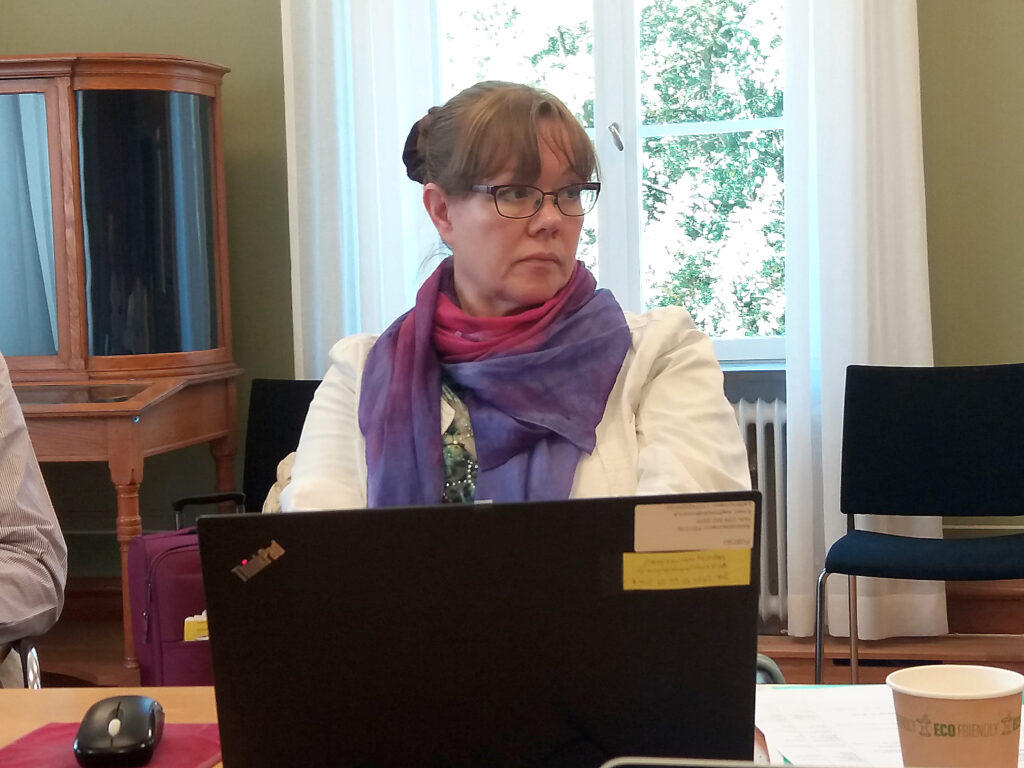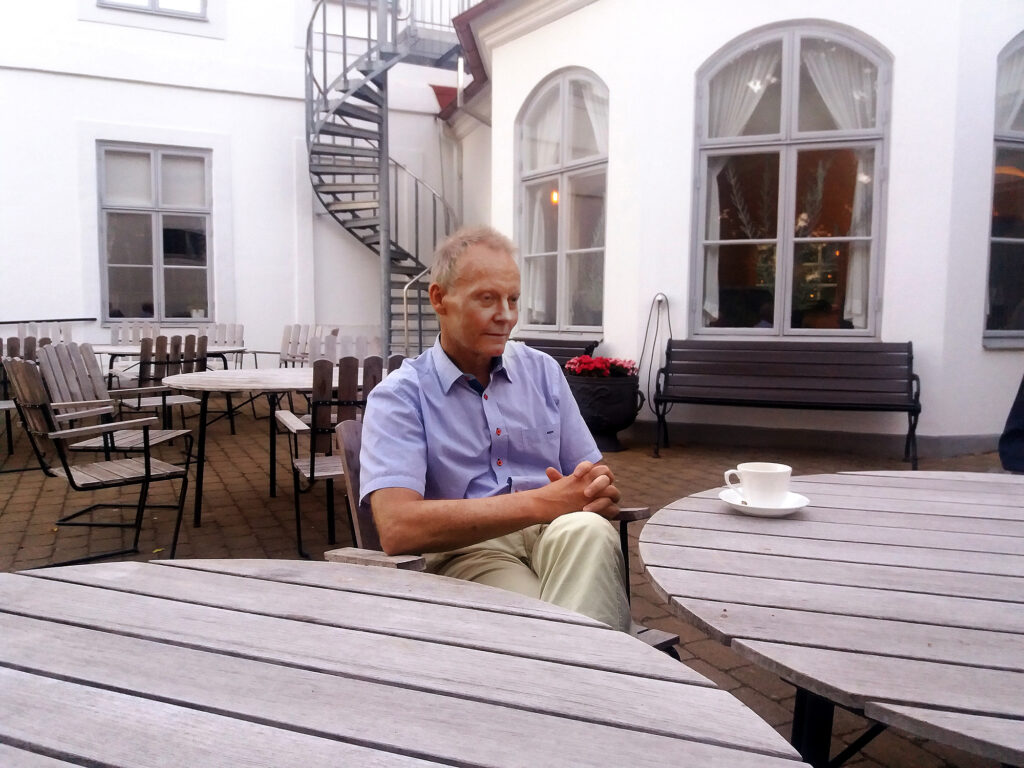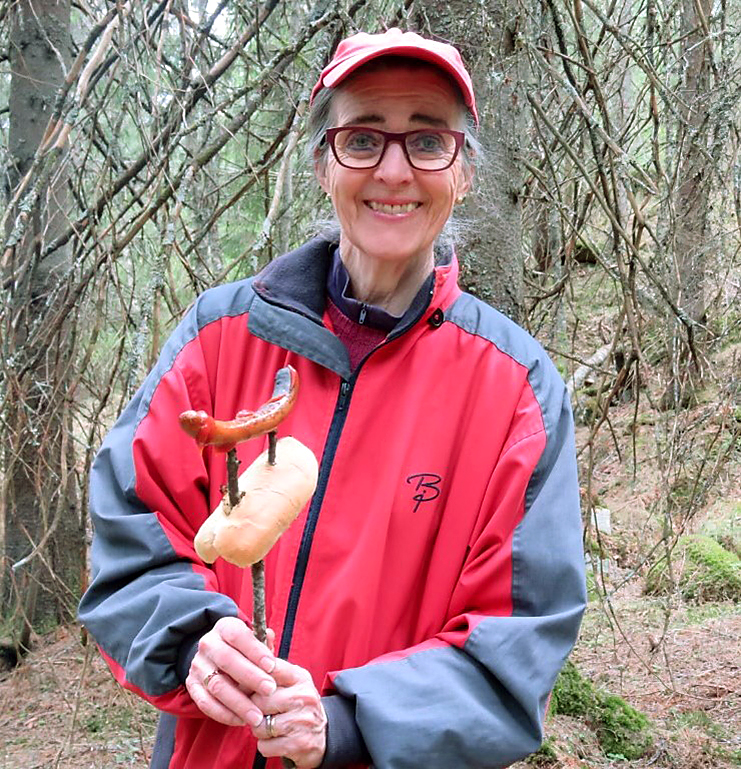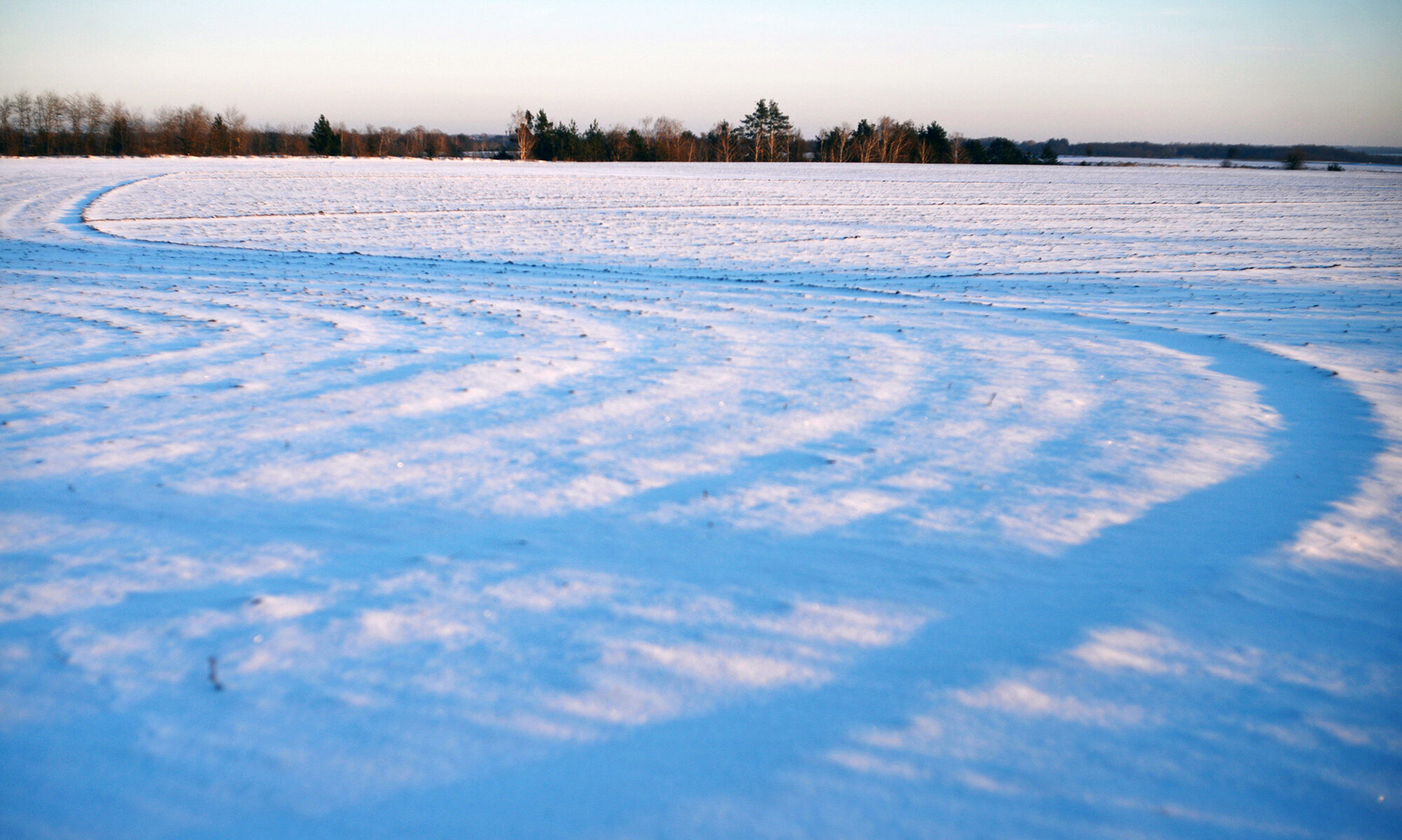NKJ turns 60! With such a long experience of Nordic cooperation in the agricultural and food sector, we are now moving forward into the future. But what do we actually bring with us, and where are we heading now?
NKJ was founded in 1965, as a body for financing joint Nordic research projects in the agricultural sector. The money came from the membership fees paid by each country. Today, financing comes from both the member countries and the Nordic Council of Ministers, and the activities have both grown and changed.

– Now we finance cooperation between researchers but have no research projects of our own, says Suvi Ryynänen, Ministry of Agriculture and Forestry, who has been a member of NKJ’s board since 2003.
– The financing of joint Nordic projects had a great significance in the beginning, after the war, when a cross-national research collaboration was to be started. Before the EU, Nordic cooperation was the most important arena for collaboration, says Niels Götke, Head of Division at the Danish Agency for Science and Higher Education and member of the NKJ board since 2010.
The cooperation has not been limited to the Nordic region, more neighbors have over time been included in the group. More countries in the nearby area have similar conditions and issues.
 – In 2012 we decided to create a new bioeconomy initiative, and at the same time the EU was working on a new bioeconomy strategy. We also brought in the Baltic States in the work, which we had not done before, says Niels Götke.
– In 2012 we decided to create a new bioeconomy initiative, and at the same time the EU was working on a new bioeconomy strategy. We also brought in the Baltic States in the work, which we had not done before, says Niels Götke.
– For example Estonia is very innovative, and the Nordic and Baltic countries have much to learn from each other, says Suvi Ryynänen.
One of the points of Nordic cooperation is to make the small Nordic countries stronger together. In larger contexts we can raise our issues and give them greater weight if we speak with one voice.
 – Being a springboard towards the EU and creating relevance is an important task ahead for NKJ, in order to be able to access funds from the EU’s research programs. We strengthen the Nordic voice and create important platforms, says Siri Anzjøn, who was a member of NKJ’s board between 2002 and 2023, and has worked at the Research Council of Norway.
– Being a springboard towards the EU and creating relevance is an important task ahead for NKJ, in order to be able to access funds from the EU’s research programs. We strengthen the Nordic voice and create important platforms, says Siri Anzjøn, who was a member of NKJ’s board between 2002 and 2023, and has worked at the Research Council of Norway.
That the Nordic position in the EU can be strengthened by cooperation, Niels Götke also agrees.
– I believe that the Nordic countries should stand much, much closer together. We have a good opportunity to influence the agendas that exist around agriculture and food. Climate and animal welfare are central themes in the Nordic countries and we could absolutely get greater focus on those issues when it comes to the EU’s framework programs.
– The Nordic countries need to make sure to work clearly politically and utilize the Nordic cooperation for that. Before the next period of the EU’s research programs, one should show that there has long been a well-functioning cooperation on agriculture in the Nordics, he continues.
That NKJ has an important function to fill and that there is much left to do is clear.
– Something that is very important going forward, in my personal opinion, is the nature agreement that the UN came up with. It says that 30% of the areas should remain intact nature. Lack of land and land use I think will only become more and more relevant in the future, says Siri Anzjøn.
Suvi Ryynänen has a background in the food sector and can see that NKJ could have a greater task there than it takes on today.
– It has been quite technical and natural science issues so far. Maybe we need to get to the social side?
– We need to change the food system, it does not work well either for us humans or for the environment as it is now, but how do we bring about change? We know what changes we need to make, but how do we get people on board and really implement it? How to do that we have not worked so much on yet.
Niels Götke believes that the way we use our financing can change and become more relevant.
– I do not think we should stop the financing of research networks, but maybe do it a bit more ad hoc, and tie it more closely to the political discussion.
But what are the needs that NKJ has filled over the years? What makes the cooperation so successful? Siri Anzjøn, at least, has an answer.
– I believe in the way of working that NKJ has; to meet and talk. There is a lot of learning in that. And also that younger people are recruited, says Siri Anzjøn.
– There is a continuity, that you build stone by stone and there is always someone who knows the history and is confident about what the way forward should be – there is almost a mentor function built into the system. It provides a great sense of security.
– You meet so many people through NKJ who know so much and have so much to pass on. You feel that you gain insight into new themes and other ways of both thinking and working, by over time building trust in a group. The culture that NKJ represents, that is Nordic cooperation at its core, she continues.

